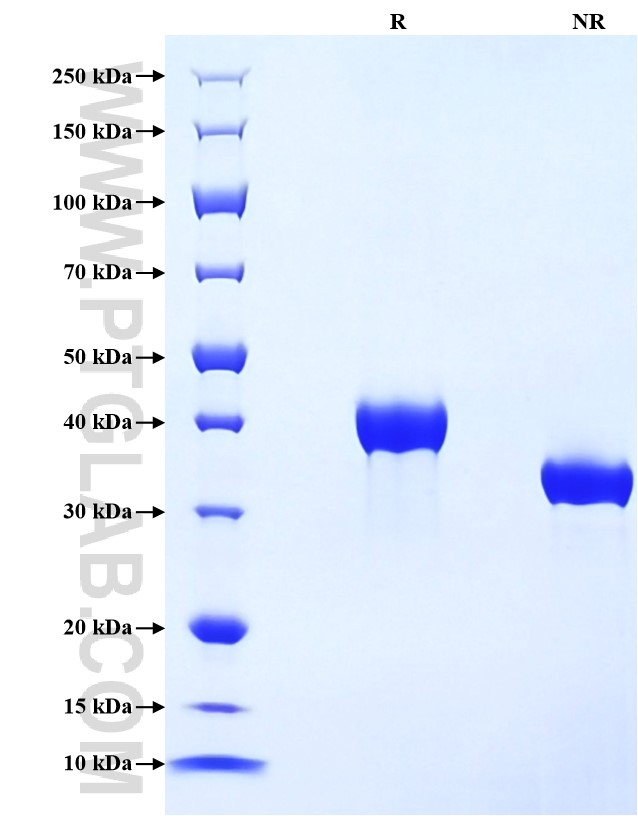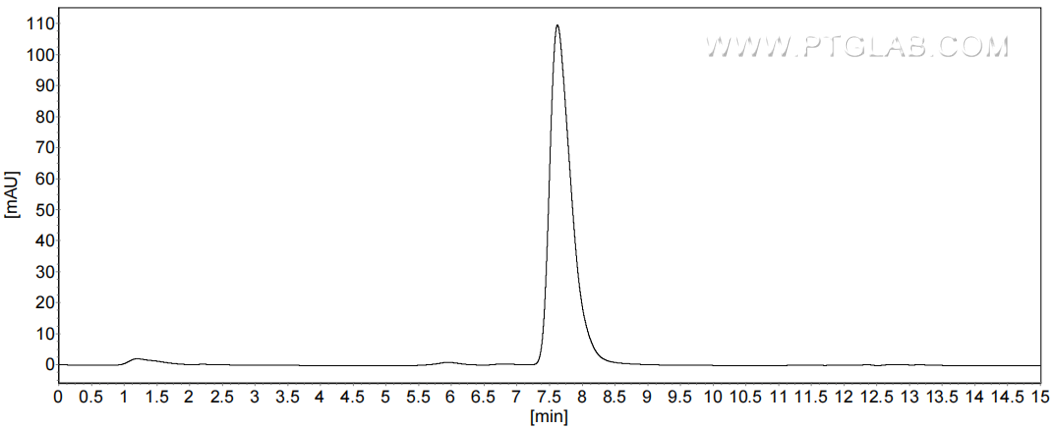Recombinant Human SPARC protein (His Tag) (HPLC verified)
种属
Human
纯度
>90 %, SDS-PAGE
>90 %, SEC-HPLC
标签
His Tag
生物活性
未测试
验证数据展示
产品信息
| 纯度 | >90 %, SDS-PAGE >90 %, SEC-HPLC |
| 内毒素 | <0.1 EU/μg protein, LAL method |
| 生物活性 |
Not tested |
| 来源 | HEK293-derived Human SPARC protein Ala18-Ile303 (Accession# P09486) with a His tag at the C-terminus. |
| 基因ID | 6678 |
| 蛋白编号 | P09486 |
| 预测分子量 | 34.3 kDa |
| SDS-PAGE | 37-44 kDa, reducing (R) conditions |
| 组分 | Lyophilized from 0.22 μm filtered solution in PBS, pH 7.4. Normally 5% trehalose and 5% mannitol are added as protectants before lyophilization. |
| 复溶 | Briefly centrifuge the tube before opening. Reconstitute at 0.1-0.5 mg/mL in sterile water. |
| 储存条件 |
It is recommended that the protein be aliquoted for optimal storage. Avoid repeated freeze-thaw cycles.
|
| 运输条件 | The product is shipped at ambient temperature. Upon receipt, store it immediately at the recommended temperature. |
背景信息
SPARC, also known as ON (Osteonectin) or BM-40 (Basement-membrane protein 40), is an extracellular glycoprotein, belongs to a group of matricellular proteins defined as secreted components that do not contribute directly to the formation of structural elements but serve to modulate cell-matrix interactions and cellular functions. SPARC is expressed at high levels in bone tissue, is distributed widely in many other tissues and cell types, and is associated generally with tissues undergoing morphogenesis, remodeling and wound repair. It elicits changes in cell shape, inhibits cell-cycle progression, and influences the synthesis of extracellular matrix. Altered expression of SPARC has been reported in a variety of cancers, which include breast, ovarian, colorectal, and pancreatic cancer as well as melanoma and glioblastomas.
参考文献:
1. P Bornstein, et al. (1995) J Cell Biol. 130(3):503-6. 2. Paul Bornstein, et al. (2002) Curr Opin Cell Biol. 14(5):608-16. 3. Q Yan, et al. (1999) J Histochem Cytochem. 47(12):1495-506. 4. A D Bradshaw, et al. (2003) Proc Natl Acad Sci U S A. 100(10):6045-50. 5. Isabella T Tai, et al. (2008) Drug Resist Updat. 11(6):231-46.



